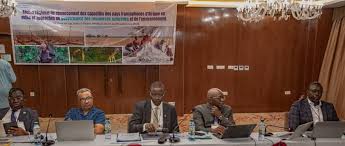Against the backdrop of natural resource degradation and vulnerability to climate change, Senegal is hosting a regional workshop to build the capacity of African leaders in ecosystem governance.
By Abdourahmane Diallo
On Monday, September 23, a regional capacity-building workshop for Francophone African countries on natural resource and environmental governance tools and approaches opened in Dakar. The event, organised by the Food and Agriculture Organization of the United Nations (FAO), aims to equip officials in charge of environmental and natural resource management in these countries.
In the face of galloping desertification and the rapid disappearance of forests – 4.4 million hectares will be lost each year in Africa between 2015 and 2020, according to the FAO – the sustainable management of natural resources is more urgent than ever.
“The degradation of natural resources, the erosion of biodiversity and the vulnerability of our countries to the effects of climate change are just some of the major challenges facing Africa,” said Dr. Thialao Sarr, Technical Advisor to the Minister of Environment and Ecological Transition.
He pointed out that despite the migration crises and unemployment affecting Africa’s youth, “our continent remains the most vulnerable” to natural disasters, mainly because of its low adaptive capacity.
Governance, key to sustainability
Building the capacity of national administrations, particularly environment ministries, is seen as necessary to reverse this trend. According to Dr. Makhfousse Sarr, Assistant to the FAO Representative in Senegal, this workshop “will enable participants to better adapt natural resource governance tools and approaches,” while addressing the specific challenges posed by practical cases of African ecosystem management.
Governance, considered by some to be the main lever for curbing the degradation of natural resources, needs to be examined in depth. As Dr. Thialao Sarr pointed out, quoting the renowned Kenyan activist Wangari Maathai, “good governance is necessary” to restore and sustainably protect ecosystems.
In a context where demographic projections indicate that the world’s population will reach 9.7 billion by 2050, pressure on natural resources will inevitably increase. Africa, with its already severely degraded drylands (45 percent of land affected by desertification), will need to redouble its efforts to ensure the sustainability of its resources while meeting growing food demand.
“Poor agricultural performance has led to increased exploitation of land and fisheries,” said Dr. Sarr, adding that “these pressures, combined with the impacts of climate change, threaten the resilience of ecosystems and food security.”
Through this training program, FAO is providing African governments with the means to rethink their environmental governance strategies. In this sense, the Dakar meeting will provide a framework for reflection, exchange of expertise and sharing of experiences, leading to concrete recommendations for better management of natural resources in Africa.
The workshop will not only provide a diagnosis, but will also propose possible solutions to strengthen environmental governance.
“This initiative will help create an enabling environment for better management of African ecosystems,” concluded Dr. Makhfousse Sarr, stressing the importance of FAO’s support and the willingness of African governments to integrate the workshop’s recommendations into their national strategies.
ARD/te/sf/lb/as/APA


